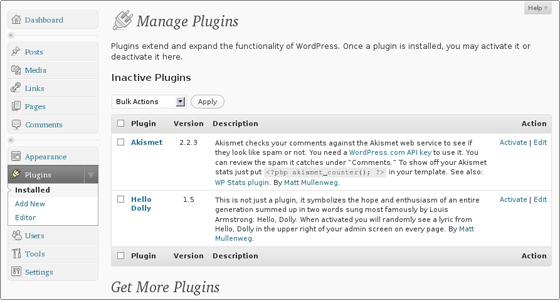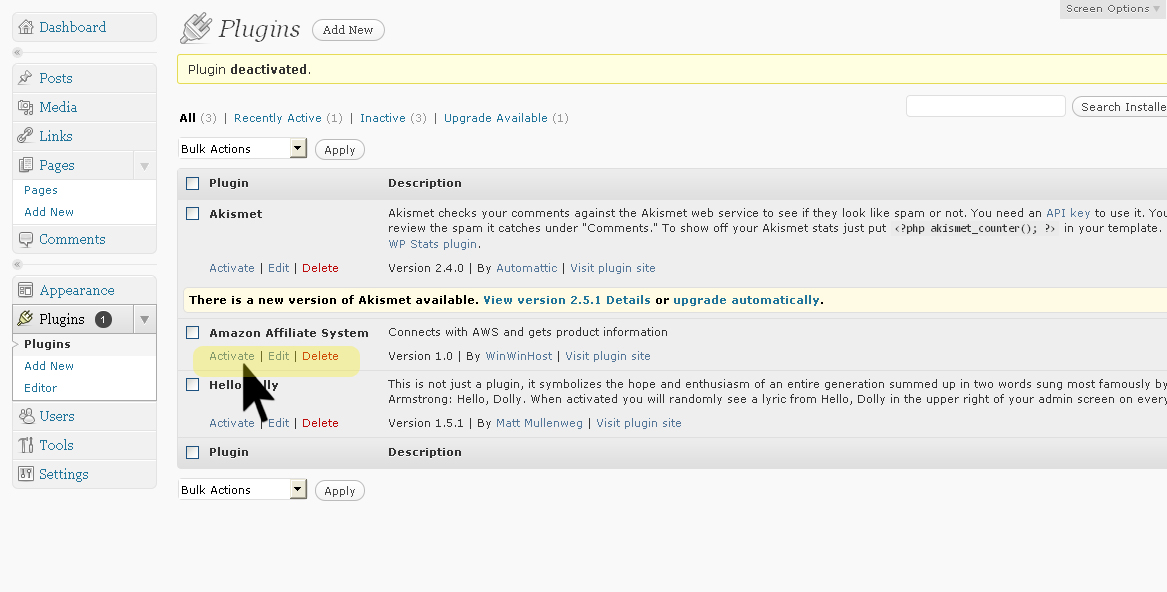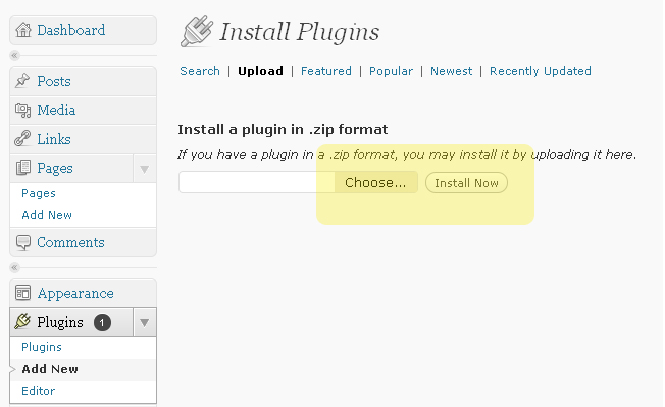
Plugins are composed of php scripts that add additional functionality to your blog. They offer new additions to your blog that either enhance features that were already available or add otherwise unavailable new features to your site.To install a plugin you generally just need to put the plugin file into your “wp-content/plugins” directory. Once a plugin is installed, you may activate it or deactivate it from the Plugins menu in your WP administration.
The plugins usually come in a zip format so you will need to extract the files first using software such as winzip before uploading the plugin to your hosting account.

Read through the readme.txt files and web pages, as well as any comments regarding the Plugin on an author's website, before you install. The more you know before you install, the easier the process should be.
Generally the Plugin installation is a straight-forward process. In most cases it is enough to upload the plugin under the 'wp-content/plugins' directory for the WordPress installation and activate it from the administrator backend.

In WordPress 2.7 and above you can install plugins directly from the admin area. You need to download the plugin to your computer, then log in to your WP admin area and go to Plugins -> Add New. Browse to the plugin archive and select it. Then click Install Now and the plugin will be installed shortly.

The removal of an plugin is also straight-forward in most cases. Simply remove the directory for the plugin you would like to uninstall and it will be automatically deactivated.
Not all Plugins are so easily installed, but WordPress plugin authors and developers make the process as easy as possible.